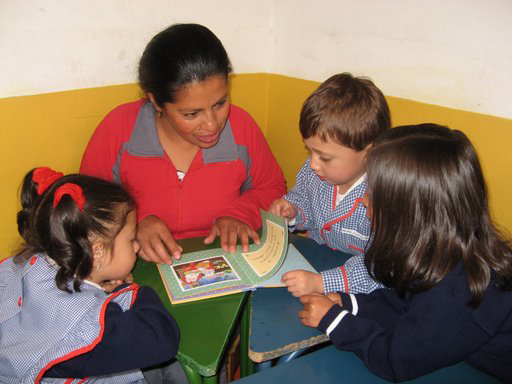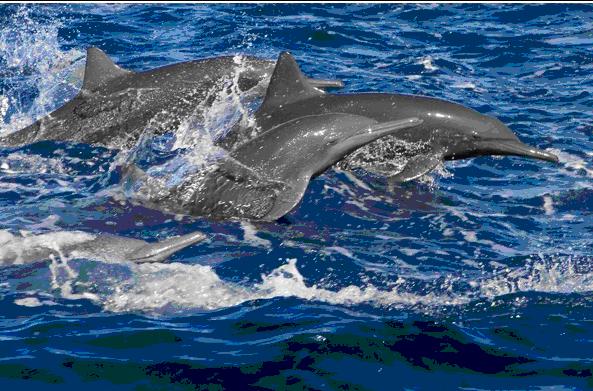The Partnership for Development Fund FEMCIDI is an important
mechanism for cooperation within the OAS that seeks to transform
the political priorities identified by the member states into concrete
actions.
This innovative initiative enables the member states to coordinate
efforts to forge a United Hemisphere promoting development.
FEMCIDI projects will focus on
Education, Culture,
Science and Technology and Tourism:
|
Education
|
|

Education is the foundation of economic growth, social inclusion, and the development of a democratic and productive citizenry. While the countries of the
Hemisphere have made significant strides in enrolling more children and young people in school, progress has been slow in improving the quality of education and in reducing disparities in access and quality between more and less advantaged groups.
Priority themes:
- Early Childhood Education
- Secondary Education with a focus in teacher preparation
|
|
Culture |

The Americas constitute a remarkably diverse hemisphere in which culture can
be a source of identity, social cohesion and economic growth.
Priority themes:
- Expanding economic growth
and promoting development through culture
- Fostering social inclusion through
culture.
|
|
Scientific Development and Exchange and Transfer of Technology
|

Science, technology, engineering, innovation and science education are fundamental for the integral development of member states. In this context, efforts will be made to promote dialogue, facilitate cooperation and technical assistance, foster experience sharing, and support member states in their activities.
Priority themes:
- Strengthening national
quality infrastructures, with emphasis on metrology, to ensure competitiveness
of micro, small and medium enterprises (MSMEs)
- Promoting improvements in
science and engineering education to foster innovation, entrepreneurship and
competitiveness
|
|
Sustainable Development of Tourism
|
 Tourism’s potential as an engine of sustainable economic growth and development of the member states is widely recognized. Enhancing the region’s competitiveness in this sector requires continuous diversification, innovation and upgrading of the tourism product.
Tourism’s potential as an engine of sustainable economic growth and development of the member states is widely recognized. Enhancing the region’s competitiveness in this sector requires continuous diversification, innovation and upgrading of the tourism product.
Priority Themes:
- Tourism industry competitiveness,
particularly among microenterprises and small and medium-sized
companies, and support for human capacity building in the public
and private spheres through training and the use of information
and communication technologies (ICTs)
- Promotion of the sustainable development of tourism,
through the mitigation of negative environmental
impacts, increased public awareness about the importance of
preserving ecological balance in tourist areas, enhancing
relations between tourism and other sectors of the economy, and
support for ecotourism and sustainable tourism by means of
dialogue between the public and private sectors)
|
The following areas will be implemented
during the next cycles:
|
Economic Diversification and Integration, Trade Liberalization and Market Access |

The promotion of economic diversification and integration, trade liberalization and market access can lead, through expanded market and investment opportunities, to enhanced economic development, job creation and poverty reduction in Member States.
|
|
Labor
|

In the area of labor, support to the member states’ efforts to strengthen the institutional capacity of their Labor Ministries will be provided to develop and implement policies aimed at the generation and promotion of decent work. |
|
Social Development
|

In the area of social development, priority will be given to strengthening policies, enhancing their implementation, and developing and supporting programs which improve access for the
vulnerable communities to employment, education, health and housing and other sustainable social services. |
|
Sustainable Development and the Environment
|

Environmental specialists and government agencies develop sound practices and technologies, contribute to the creation of policy, strengthen environmental protection institutions and establish training programs in disaster preparedness and recovery practices. Ensuring that sustainable development policies and projects help reduce poverty, particularly in rural areas. |




 Tourism’s potential as an engine of sustainable economic growth and development of the member states is widely recognized. Enhancing the region’s competitiveness in this sector requires continuous diversification, innovation and upgrading of the tourism product.
Tourism’s potential as an engine of sustainable economic growth and development of the member states is widely recognized. Enhancing the region’s competitiveness in this sector requires continuous diversification, innovation and upgrading of the tourism product.

